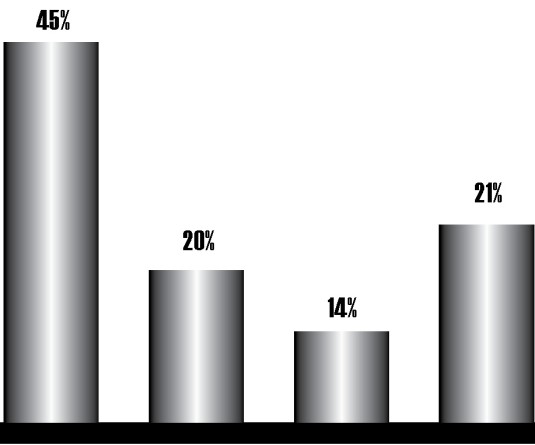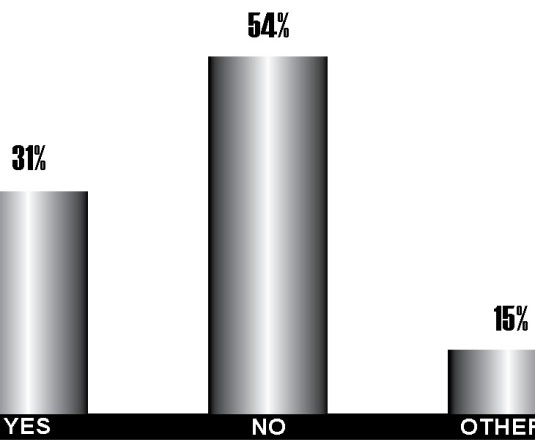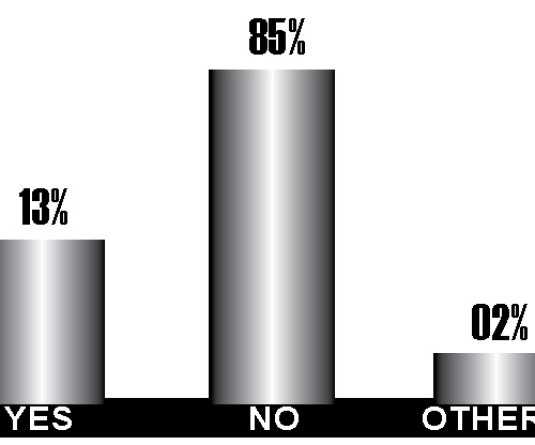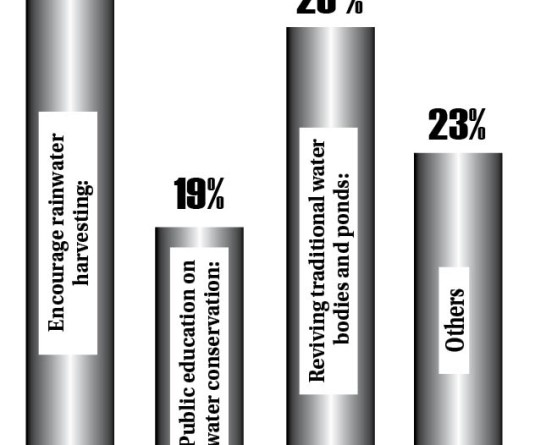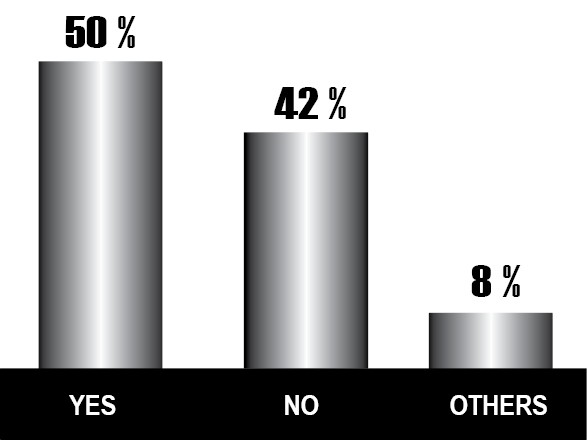
Some of those who voted YES had this to say:
• Very much. It has much impact. Many families at home do not communicate with their own language but Nagamese. Particularly here in Dimapur everything (almost) is Nagamese. As a result children do not learn their own mother tongue or cannot speak. And if this trend goes on, our own beautiful tribal languages will be gone in few generations to come. It is a very serious concern.
• It has led to the negligence and ignorance of our own mother tongue.
• Yes. Nagas are mostly relying on a bazaar language so called ‘Nagamese.’ We need to stop giving so much importance to this bazaar language. Instead scholars need to develop our own common Naga dialect.
• Go to Dimapur all the people even the kids speak only Nagamese and when they come to villages or native towns they will be like “ami Ao nejanitu, ami Sema nejanitu” and boasting around it is just my sentiment but yes it does have a negative effect. Instead of Nagamese, English should be mandatory.
• Nagamese is just a broken language of Assamese and Bengali and is actually a bazaar language. Some people cannot even construct a proper sentence in their own dialect which is very shameful and also a threat to our rich culture and identity. I do agree that Nagamese can be helpful in connecting with our friends from other tribes and thus it is a must to learn. After all, it is the alternative for those who cannot speak English. Coming to the point of having negative impact, it depends upon individual perception on how he/she is giving importance to his mother tongue. I feel that we the younger generations are lacking behind something and that is to communicate in our local dialects with our friends from same community/tribe. If we don't want to become foreigners in our land, let's develop the habit of speaking, writing, communicating etc in our dialects to protect, preserve and conserve our local languages for our future generations.
• Of course any pidgin language is a bastard with neither father or mother. It is however, a necessary evil such as among the slaves of the West Indies who developed Patois. Nagamese will erode linguistically, culturally and socially among the lower echelons of society. It is the language of a subjugated people.
• Children will gradually ignore their mother tongues.
• Most of the younger generation has no in-depth understanding of their own mother tongue because they have spoken Nagamese all their lives .those spent years could have been better utilised if they had had conversations in their own dialect. It would have definitely enriched their mastery over their own dialect just like they have the mastery over Nagamese.
• Yes, a walk around Dimapur is enough to convince you that Nagamese has negatively impacted our own Naga languages. Dimapur has become like any Indian city. The unique cultural diversity and languages you used to see and hear in Dimapur is being taken over by Nagamese culture. It is very sad.
Some of those who voted NO had this to say:
• We need a common language to communicate among tribes. When you get rid of Nagamese, then English, Hindi would replace the same role. Would we then start blaming these languages for endangering indigenous languages? Being a polyglot should be encouraged.
• Nagamese being the bridge/common language to communicate among the different communities and tribes.
• No, I don’t think so being multilingual has nothing to do with hampering or endangering one customs or indigenous, language is a form of art, being able to communicate in multiple language breaks barriers between people.
• Nagamese is a necessity for the people of different tribes to have a common medium so that they can converse with anyone in the state. We should put more effort in local language textbooks of students though.
• No, why because Nagamese is a means to communicate to other tribes or non-Naga people in Nagaland. But the negative impact is not really speaking Nagamese, but it has to do with simply coping other cultures and traditions, say for example our Naga youth this days are fond, of Korean, Japanese and more of western ideas and their philosophies, and also I have seen some family that even though they can speak the same tribal language, (apart from being cocktail-as in mixed tribe in one family) they speak, communicate and even teach on English, and they are from mostly younger generation highly educated family or parents, so its degrading our traditional language.
• Our culture is our identity and our culture begins with the language we speak. Many children today do not speak their own indigenous languages but Nagamese and English. Why? Because their parents teach them how to speak those but not their languages. It is not a loss learning to speak English or Nagamese but without culture beginning from the language we speak, we are losing our culture in a way or the other. We should keep our rich culture alive.
• Nohoi dey, Nagamese toh positive ase dey and has become ‘Lingua Franca’ for the Naga people. Thanks to it we are able to communicate today freely without any barriers and without chopping each other heads off which we do it any which ways. Nagamese in fact helped the warring Naga tribes interact with each other easily in the past and still today it does, More than half of Naga people live in our Native place (Which we consider Rural, sometimes), there everyone uses one mother tongue, not Mandarin or Tamil! So Nagamese helps a lot, otherwise one does not like to blabber Hollywood vibe language in Kohima, Wokha, or Mon! So the Very question itself of Positive or Negative is not applicable to many (unless it COVID status)! Would you like the Sumi fellow to speak Tenyidie in Kohima, No? You want an Ao fellow to speak Ao in Wokha? Or what helps the Bihari and Marwari to speak and do business in Naga laga maati? Of course, Nagamese is King and others are No less, so let's be happy with Nagamese, let it go, dey. Long Live Nagamese! As for Indigenous language, it goes on the line of 'The King is dead, Long live the King'! Moroom Para, explanation call naa matibi dey, kokaai!
• Indigenous language still spoken at home and among fellow tribal. A common lingua franca - Nagamese or English - is needed with all the linguistic diversity among Nagas.
• Nagamese is the most common Naga language spoken by all the Naga tribes; it has dialects and accents based on geographical region. This language is the mixture of all the languages including Bengali, Hindi and English, so it is not even a broken Assamese like some may claim. A language of a tribe is spoken within a tribe, but Nagamese, and English are both official and working languages in all Naga areas. Let there be only positive attitude towards Nagamese for this is a language given by the almighty God, and loved by many.
Some of those who voted OTHERS had this to say:
• Why not mention 'English' too? The use of English language has become a sense of standardization in our society. It is sad to see now days many young parents tend to speak mostly in English with their children rather than our local dialect which is our root. Regarding Nagamese, we tag it as 'bazaar language.' But it is a source for communicating in the entire of state of Nagaland without which there will be language barrier. No language is redundant or unimportant. Speak local dialect at home, speak English at school/office and speak Nagamese for commercial/social life.
• Nagamese even illiterate can speak in Nagaland so it should be common language.
• It is funny that in some meetings people have started saying that if you cannot speak Nagamese you are not a Naga. They don’t realize that Nagamese is a market language and that it contains no Naga language. It is wrong to equate Naga with Nagamese.


